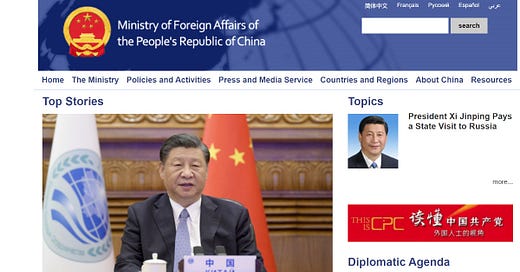Who controls the website controls the present
On George Orwell, the Prague Spring, and who's in charge of the digital domains
George Orwell famously wrote in "1984" that "Who controls the past controls the future". He was right, at least in spirit: How history is framed by its authors bears heavily upon what we understand about the present. That is, of course, why it matters so much for historians to uncover as many first-hand accounts of the past from those who were omitted from the victors' drafts.
■ Orwell was right about the past, indeed, but we could add a modern adjunct: Who controls the website controls the present. Mentions and photographs of China's foreign minister are being erased in real time as he appears to fall out of favor with the country's ruling powers. It's not an orderly transition; it's an abrupt change first revealed not by an announcement but by the rearrangement of bytes and pixels.
■ In the 20th Century, one of the first steps an invading or rebelling force would try was to capture the radio and television stations. Control of broadcasting outlets played meaningful roles in events like the Warsaw Uprising and the 1968 occupation of Czechoslovakia.
■ Today, though, while broadcasting outlets are still generally important, it would seem far more vital for occupiers (or rebels) to gain control of the URLs for official channels of information. Even in a peaceful and orderly transition, a new Presidential administration promptly replaces the previous White House website with its own. What appears to be happening in Beijing seems less than orderly -- and the websites may be the first indication of any part of it ceases to be peaceful.
Subscribe to The Evening Post and Mail
The digital evening newspaper editorial of the Great Midwest. Committed to being thought-provoking, not mindlessly provocative.





